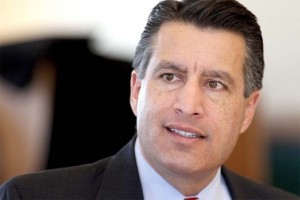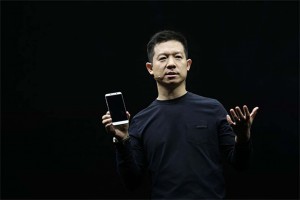Secretive start-up carmaker Faraday Future has announced plans to invest $1 billion in a new assembly plant that it will erect in suburban Las Vegas.
Backed by the Chinese billionaire Jia Yueting, Faraday is promising to build a pure battery-electric vehicle that will target, among other rivals, the products of California’s Tesla Motors. Coincidentally, Tesla earlier this year began setting up a $5 billion battery plant, the so-called Gigafactory, near Reno, Nevada.
As with the Gigafactory, Faraday was lured to the gambling mecca by a large tax incentive – this one reportedly worth $250 million. In return , the North Las Vegas factory is expected to generate 4,500 jobs and should even boost tourism by offering plant tours and “other engaging experiences,” the budding carmaker promised.
“We plan to revolutionize the automobile industry by creating an integrated, intelligent mobility system that protects the earth and improves the living environment of mankind,” Jia said in a letter sent to the Nevada legislators who had to approve the incentive package.
(Porsche confirms plans for Mission E battery sports car. Click Here to check it out.)
The 42-year-old entrepreneur is founder and CEO of Internet video service LE-TV. He is often referred to as the Chinese Steve Jobs, and has followed a similar path, until now focusing on smartphone and television technologies, but also planning to launch a new online store in the U.S. Like Jobs, Jia sees himself as a visionary who takes pride in “disrupting” traditional industries.
So far, Faraday has provided few details about its plans, though it has hinted the vehicle will be personalized “in ways you’ve never even considered.”
The company has said it will show off a concept version on January 4, 2016 at the Consumer Electronics Show in Las Vegas, and is targeting production by sometime early in 2017.
Along with the direct factory jobs, Nevada Gov. Brian Sandoval said the tax incentives were justified by the promise of at least 9,000 more indirect jobs and an estimated $760 million in tax evenue over the next 20 years. Nevada offered $1.25 billion in incentives for the Tesla Gigafactory, but the investment there was expected to reach $5 billion.
(Samsung is the latest high-tech firm targeting autonomous vehicle market. Click Here for more.)
Faraday was originally incorporated in the State of California in May 2014 as LeTV ENV Inc. Ironically, it has set up its initial operation in the former suburban Los Angeles headquarters of Nissan Motor Co. Nissan’s U.S. operations are now based in Nashville.
Faraday has also pulled some talent from other parts of the auto industry, many of its senior managers lured away from Tesla, including Nick Sampson, Faraday’s head of R&D and Engineering, and Dag Reckhorn, its new manufacturing boss. Meanwhile, Richard Kim, who is handling design for the new Faraday vehicle, lead the styling team at BMW on the Bavarian maker’s i3 and i8 battery cars.
R&D chief Sampson, in a profile in the Verge, took a swipe at his former employer. “Many people look at Tesla and think they’ve done it differently than the traditional auto industry — and they have,” he said. “But there’s other ways and other things we can capitalize on.”
But whether Faraday will succeed in topping Tesla, indeed, whether it will succeed at all, is far from certain. Demand for battery-based vehicles has tumbled this past year as fuel prices have gone into freefall, and it’s anyone’s guess how soon that will change.
Meanwhile, traditional automakers aren’t letting upstarts like Tesla or Faraday have a free hand in the electric vehicle market. Ford this week announced plans to invest $4.5 billion in electrified vehicles by the end of the decade. Mercedes-Benz has plans to launch 10 plug-in hybrids by 2018, and Volkswagen and its Audi brand intend to offer battery-based versions of virtually every model they offer. General Motors, meanwhile, will launch its long-range Chevrolet Bolt electric vehicle next year.
(Ford investing $4.5 bil in new electrified vehicles by 2020. Click Here for details.)


